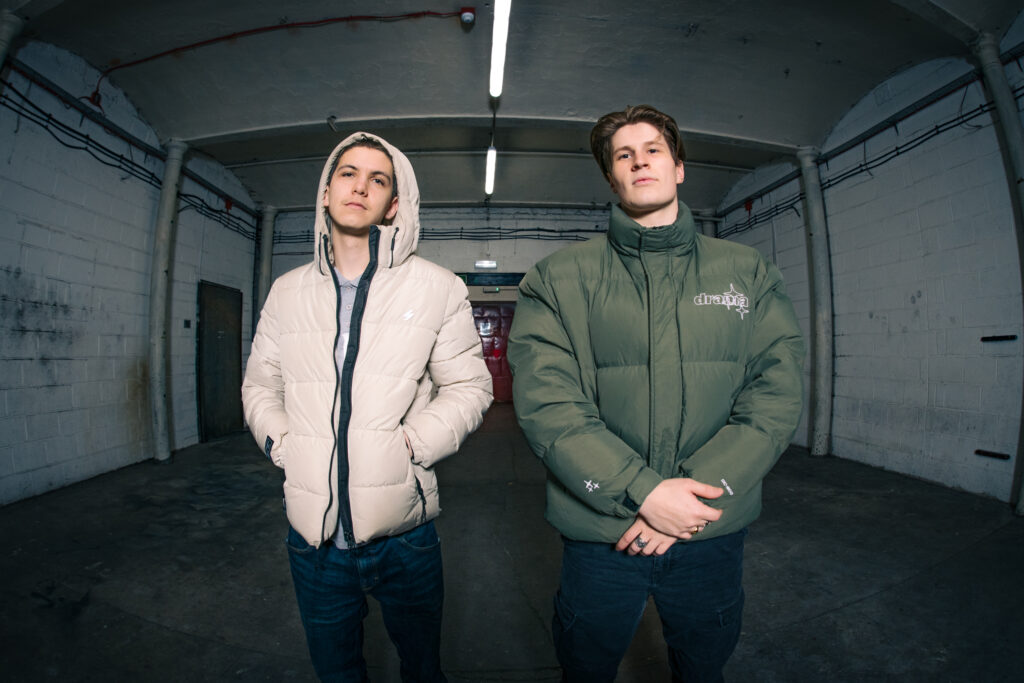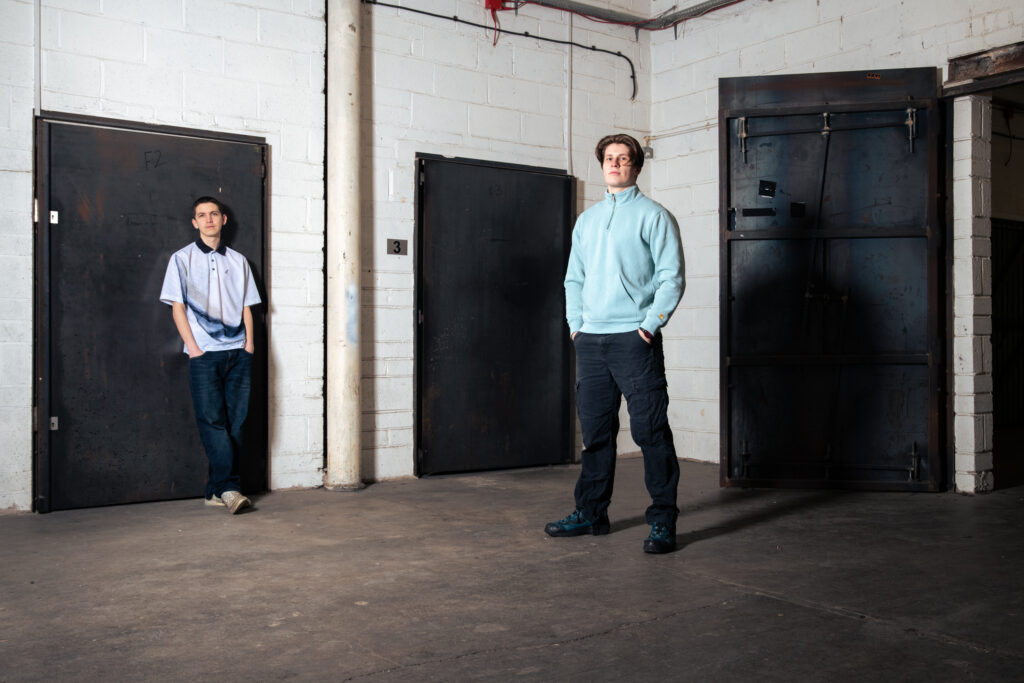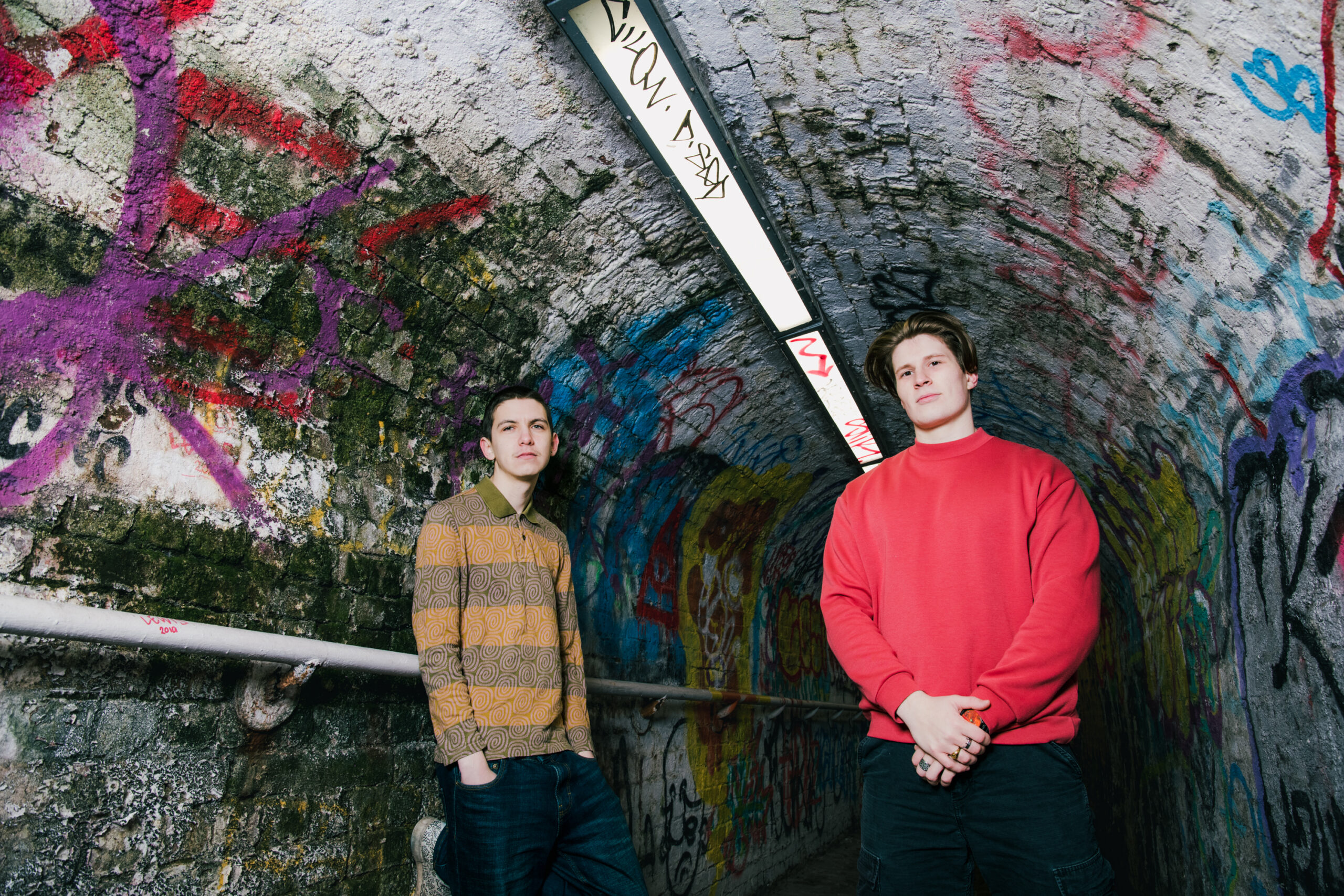As a portmanteau of both their names, Fieves is a collaborative project between rapper Finnerz and producer and DJ Yves Jones. The Mancunian duo immediately hit the ground running, and in less than two years, have enjoyed major airplay on British radio, played iconic venues in their city, done collaborations with Red Bull, and recently signed a record deal.
Fieves spoke to Post-Burnout to discuss their latest single “Loss is Loss,” forming the project, their growth, how working together compares to other people they’ve worked with, their music, their upcoming projects, and more.
_____________________________________________
Yeah, so the first thing I wanted to ask was how you guys got together, and started making music together?
Yves: So, we started making music together about two years ago, I think, and we met…we actually met through some mutual friends, and it was the first time that I had spoken to someone and they had gone to the same university as me, because there was about thirty people in my year and in our class, and he was doing the same course as me, and he ended up just showing me some of his music and I was just blown away by his music, and I think I literally said to him, on the day when he showed me his first tune…actually, I think it was the “Angel Dust” tune…
Finn: Um.
Yves: …I said, “You’re going to make it.” [Laughs]
Finn: I was too high, man. Yeah, but we met smoking a spliff in a park; that’s basically it. [All laugh]
Nice! So, then for you, Finn, what was the thing in Yves’ music that made you want to collab?
Finn: I just never heard…I’d worked with producers before, and I never heard people make music that was so comprehensive, and it felt so professionally done, do you know what I mean?
Yeah.
Finn: And I was just amazed by that, really. And we sort of just gradually started linking up for studio sessions here and there, and, yeah, it always felt just very, like, an easy process, making music with Yves, and it still does. I feel like we just lock in and we just work very well together, in terms of the vision and the actual creation.
Yeah. How do you think the music, then, of yours differs from what you guys were doing individually?
Yves: I think it’s more…I don’t know, an accurate representation of what we want to bring to not only Manchester but the UK, is that authenticity of a consistent sound. I feel like our individual stuff is very varied.
Finn: Um.
Yves: I’m more electronically focused, and more for live scenarios, like in a club or an event, or at a festival; whereas the Fieves stuff, it’s more for day-to-day listening. It’s more accessible and has more of a scope on it. Yeah.
Finn: Yeah, I think the Fieves stuff has its, like, own sound, that’s really distinct, in a way. And I think that just comes from…comes a lot from Yves’ production, but even when I’m writing for the Fieves stuff, it brings a certain side out of me; just, like, a certain part of how I would write, like, I’m tapping into something that I wouldn’t usually tap into when working with other producers or working on different types of things. But yeah.
So, do you feel more comfortable, then, working with Yves than you would with other producers?
Finn: Oh, yeah. A hundred percent. Yeah. But that’s just…that just comes from that familiarity, and also just, like, I just know what…I don’t know, like, I just know that the end projects will be good, do you know what I mean? And I know that there’s that trust there between us, do you know what I mean?
Yves: Well, the same goes both ways. Like, it’s…and I really struggled, especially working with other producers, because I’ve come from more of a dance-y sort of electronic background. There wasn’t many collaborations, and the collaborations would be more like I’d work on a track, I’d then send over the project file to the other producer or the other artists, and they’d then work on it, and there would never be us just sat, both in the same studio. So, I found it really difficult then, when I had to start working with people in the studio. I just didn’t feel comfortable, I felt a lot of pressure, and the only person that I could do that with was with Finn. And there was no pressure, and it just seemed to flow. We both seemed to help each other out in both aspects of what we do, whether it’s the production from Finn, or whether it’s even sometimes me pointing out things that maybe he could focus on, in terms of the lyricism or the theme of the track.

Finn (left) and Yves (right)
Photo by Garry Jones. Courtesy of DSTNCT SPACE
Yeah, and, actually, one thing I kind of noticed about the music is that it feels a lot more soundscape-y, rather than trying to create a danceable beat or something like that, do you know what I mean? And I was wondering, for you, Yves, was that just to let Finn do his thing and just kind of compliment his lyrics?
Yves: One hundred percent. I always have him in mind when it comes to what sort of…especially with the BPM or…yeah, just I have to make sure that it’s not too complicated so that there’s still room for people to focus in on and hone in on the lyricism, rather than just be overwhelmed by all these different sounds going on and then you’ve got lyrics on top of it because sometimes it can be a little bit difficult to then, I don’t know, really get into the lyrics, and it can be a bit overwhelming, I feel like sometimes, for the listener.
Yeah. And I want to talk about your new song, then, “Loss is Loss.” I mean, I think of everything you’ve released so far, this is the most, I think, melancholic song. Yeah, I was wondering if maybe you guys could talk a little bit about that?
Finn: Yeah, so I remember the day that we jumped into the studio together, like, it was…so, we both go to university together, so it was one of the university’s studios, and, like, I was just having a bad day. I had been through some shit recently, sort of like at the time, and so had Yves, actually; we had both, over that couple of months, had lost someone. And so we had gone into the studio and just fucked around with a sample, and I just wrote this very, like, stream-of-consciousness verse about how I was feeling at the time, just in life, after this event or whatever, and that’s what sort of what then spurred the main theme of the song, is just the acceptance that, like, you know, loss is loss, love is love, like, life is life, like, these things just happen and you just kind of have to roll with the punches.
And when I was thinking, again, the kind of musicality of the song, it feels very – and I don’t know, maybe this is just my reading of it – but it feels very…the actual music feels very big and kind of…sort of oppressive, almost. It feels like…I don’t know, it feels like Finn’s almost kind of in the middle of this big…I was thinking of this big, like, urban soundscape in my head; like, a kind of rainy, grey, urban setting, in my head, and it just felt like he was very centralised and kind of being absorbed by this massive cityscape. Do you think that’s a fair representation of the atmosphere you were trying to create, or…?
Yves: Yeah, a hundred percent. Em, I think it just sort of stemmed from that studio session, because often we won’t make the whole track in one session, and that was one of the rare occasions where we actually just did; like, that whole track just sort of came together in that one sitting, and everything just seemed to really balance out, and there wasn’t much need after that session for drastic changes, it just sort of…everything fit in, and I think it was just a combination of clipping the right samples and getting that right BPM that can allow Finn to then sort of have this stream of consciousness and…yeah.
And then I was wondering, you were talking earlier about the consistency between the music, and it seems to me, in a lot of ways, you guys kind of just write whatever you feel like at the time. But what would you say are the kind of consistent factors between songs? The kind of continuity between songs, then?
Yves: Em…I think it’s very much how we’re feeling at the time. We both hate to put limits on what we want to create, and I think as soon as we say, “Oh, we’re only going to stick to this BPM,” or, “stick to this specific genre,” I think all we’re doing is limiting ourselves, and I think that we can bring our sound across multiple different genres and still stay in that same sort of theme and that same general idea.
Finn: I think the consistency comes from…I think it comes from the fact that we’ve got to a point where we’re both very sure in ourselves of what we sound like as individuals, so that when we come together, it creates this sort of new entity, almost, that just…I don’t know. Just has this consistency throughout different tracks, and the individuality of it comes through, like, the combination of us both.
Yeah. And since the project started, you guys have seen some immediate growth. I was wondering, yeah, so far in your career as a duo, how do you feel…I don’t know. How do you feel the reception’s been? How do you feel about how you guys have been growing?
Yves: Yeah, I think it’s been really great. I think, especially, since we’ve only released three or four tracks, it’s…I don’t know, the support has been overwhelming.
Finn: Um.
Yves: And the chance to play on BBC Radio 1, BBC Radio 6, as well as the live side of things without much of a, I don’t know, a background. We’ve only been doing this for two years, and Fieves has only been really a thing for a year-and-a-half.
Finn: Um.
Yves: And, usually, you have to have a whole six-year background and build it up from there, and we’ve sort of, not skipped a few steps, but we’ve just been able to advance our journey a little bit quicker, and I think that’s down to the reception that we’ve had from people, and we’ve been lucky enough to get in front of the right people but we’ve been ready for when we’ve got in front of those right people.

Courtesy of DSTNCT SPACE
Yeah, and I guess just one last thing I’ll ask is, do you have any plans, then, for an EP or an album, or is it just singles for the meantime?
Yves: Yeah, so we’ve a project coming out. “Loss is Loss” was the first track of that project; it’s a five-track project. The next single is called “Million Faces,” and that will be coming out [in] the middle of August, possibly the end of August, and then…
Finn: We’ll see! [Laughs]
Yves: And then we’re going to…Yeah! [Laughs] We’re going to release…we’re going to do a track every month, releasing the project sort of as singles, and then on the last two tracks, we’re going to release that all as the whole project together. And then we’re going to go from there – because we just signed a record deal for the project – and see how that plays out.
OK! Perfect. Is there anything you’d like to add before we wrap up, or…?
Finn: Um…just shoutout This Fiction. Shoutout Luke, shoutout Richard, all the team; we love you lot, and, yeah, we’re just excited about the future, man, and just getting more music out for everyone and seeing where it goes.
Yves: Same.
Perfect. Alright, thanks very much for your time. Appreciate it, and enjoy the rest of your day.
Finn: Appreciate ya, man.
Yves: Appreciate it. Thanks.
Fieves’ latest single “Loss is Loss” is available to stream now. You can keep up to date with the duo on their Instagram, Twitter, and TikTok.

Aaron Kavanagh is the Founder and Editor-in-Chief of Post-Burnout. His writing can also be found in the Irish Daily Star, Buzz.ie, Totally Dublin, The GOO, Headstuff, New Noise Magazine, XS Noize, DSCVRD and more.

 POST-BURNOUT
POST-BURNOUT